Retire in New Zealand for Lush Landscapes and a Relaxed Vibe
When you retire in New Zealand, you get gorgeous wilderness and a warm culture. The Kiwi pace can work wonders for American expats.

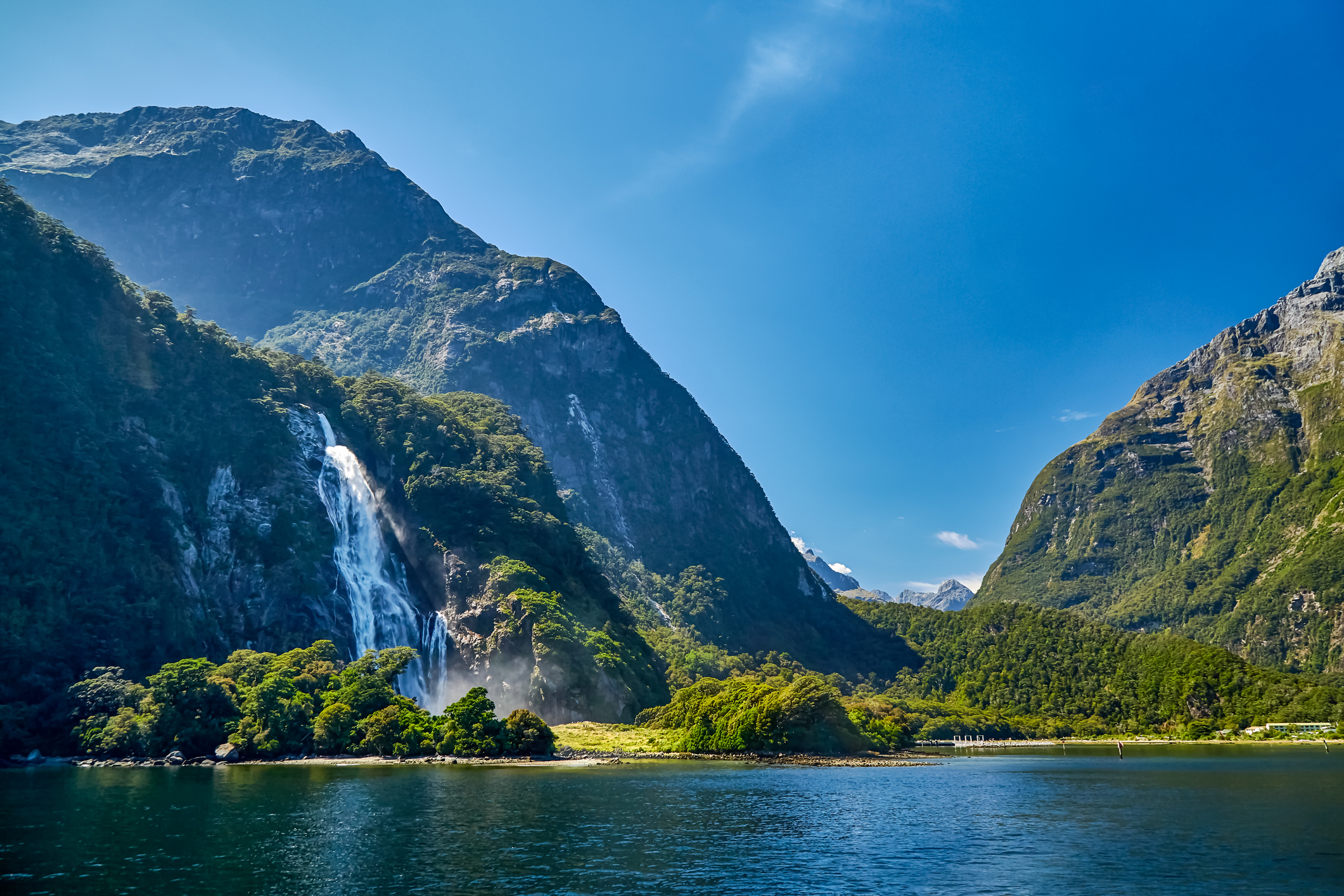
Profit and prosper with the best of Kiplinger's advice on investing, taxes, retirement, personal finance and much more. Delivered daily. Enter your email in the box and click Sign Me Up.
You are now subscribed
Your newsletter sign-up was successful
Want to add more newsletters?

Delivered daily
Kiplinger Today
Profit and prosper with the best of Kiplinger's advice on investing, taxes, retirement, personal finance and much more delivered daily. Smart money moves start here.

Sent five days a week
Kiplinger A Step Ahead
Get practical help to make better financial decisions in your everyday life, from spending to savings on top deals.

Delivered daily
Kiplinger Closing Bell
Get today's biggest financial and investing headlines delivered to your inbox every day the U.S. stock market is open.

Sent twice a week
Kiplinger Adviser Intel
Financial pros across the country share best practices and fresh tactics to preserve and grow your wealth.

Delivered weekly
Kiplinger Tax Tips
Trim your federal and state tax bills with practical tax-planning and tax-cutting strategies.

Sent twice a week
Kiplinger Retirement Tips
Your twice-a-week guide to planning and enjoying a financially secure and richly rewarding retirement

Sent bimonthly.
Kiplinger Adviser Angle
Insights for advisers, wealth managers and other financial professionals.

Sent twice a week
Kiplinger Investing Weekly
Your twice-a-week roundup of promising stocks, funds, companies and industries you should consider, ones you should avoid, and why.

Sent weekly for six weeks
Kiplinger Invest for Retirement
Your step-by-step six-part series on how to invest for retirement, from devising a successful strategy to exactly which investments to choose.
Editor’s note: "Retire in New Zealand" is part of an ongoing series on retiring abroad. To see all the articles in the series, jump to the end.
New Zealand may be the wanderlust capital of the world, and it may not even be close.
Think about it. Stunning vistas and landscapes, pristine coastal views, thriving metropolitan areas that offer abundant cultural opportunities, and friendly locales (it’s okay to call them Kiwis — everyone else does) are all on the table for adventure-minded US retirees.
From just $107.88 $24.99 for Kiplinger Personal Finance
Become a smarter, better informed investor. Subscribe from just $107.88 $24.99, plus get up to 4 Special Issues

Sign up for Kiplinger’s Free Newsletters
Profit and prosper with the best of expert advice on investing, taxes, retirement, personal finance and more - straight to your e-mail.
Profit and prosper with the best of expert advice - straight to your e-mail.
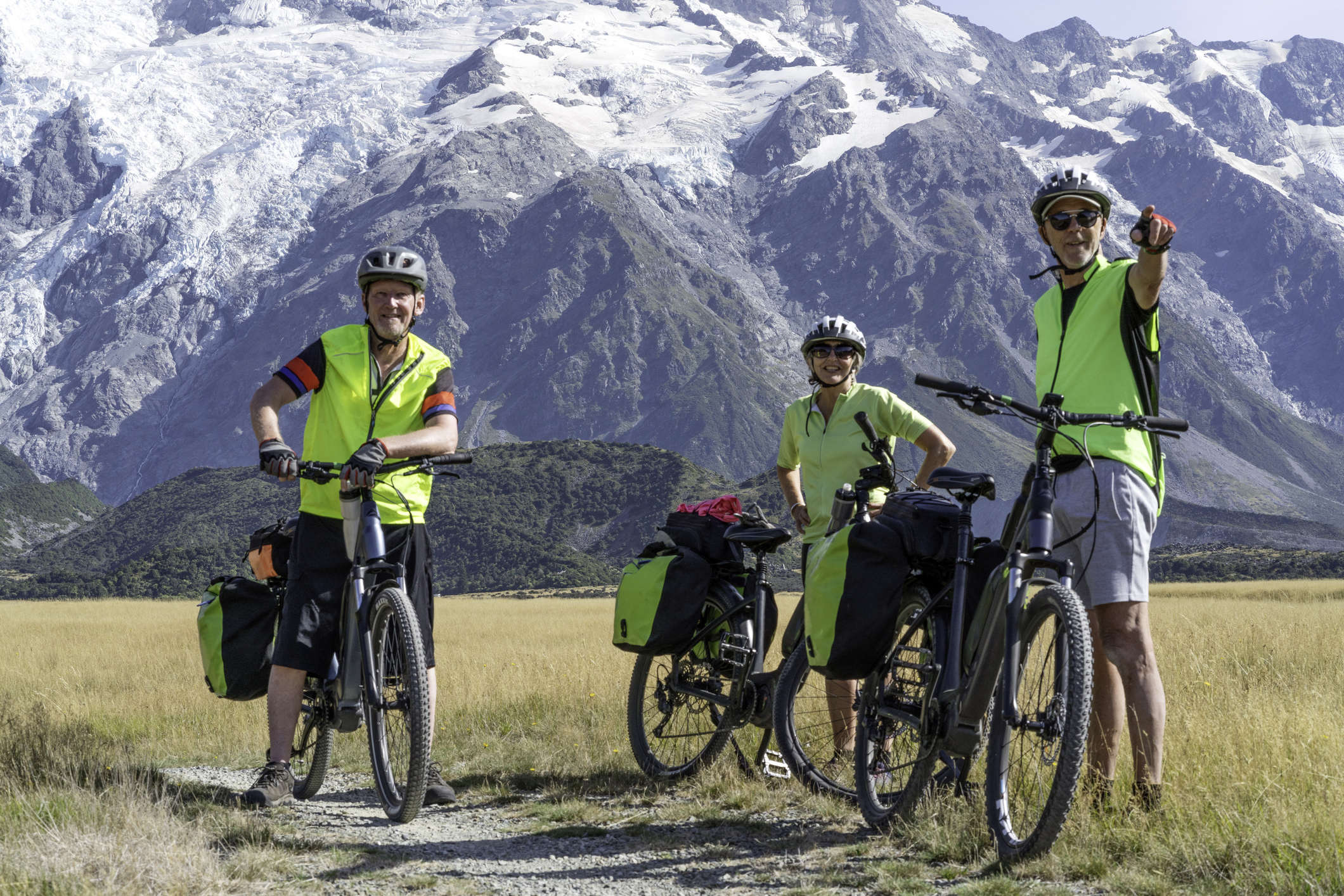
Many retire in New Zealand for the high quality of life
New Zealand has a highly educated populace and a modern, consumer-focused healthcare system; it’s no wonder the country has one of the highest life satisfaction scores, according to the latest OECD Better Life Index.
Just ask Isheeta Borkar, co-founder (along with her husband) of the travel services company Travelicious Couple.
“New Zealand is on our list as one of the best places to retire for those seeking a peaceful, scenic lifestyle,” Borkar said. “When we visited New Zealand for three months, we could feel the country’s relaxed pace and high quality of life. It just makes the country an attractive destination for retirees.”
Make no mistake, New Zealand is a vastly different lifestyle from the US. But that’s a major plus, according to Borkar. “We found that New Zealand offers a much-needed change of pace from the hustle and bustle of life in the US,” she said. “It offers opportunities to explore nature, enjoy low pollution levels, and enjoy an active lifestyle.”
In New Zealand, the great outdoor experiences are especially abundant.
“Retirees can explore the picturesque vineyards of the Gibbston Valley or spend weekends in the rugged mountains of the Southern Alps,” Borkar said. “The cost of living, although higher than some parts of the US, was offset by the country’s exceptional quality of life and healthcare. Even as tourists, we had to end up going to the hospital for an injury, and were treated at an 80% discount.”
What does New Zealand offer US retirees looking for an exotic landing spot in their golden years? Here’s what travel and retirement experts have to say, along with tips for becoming a Kiwi.
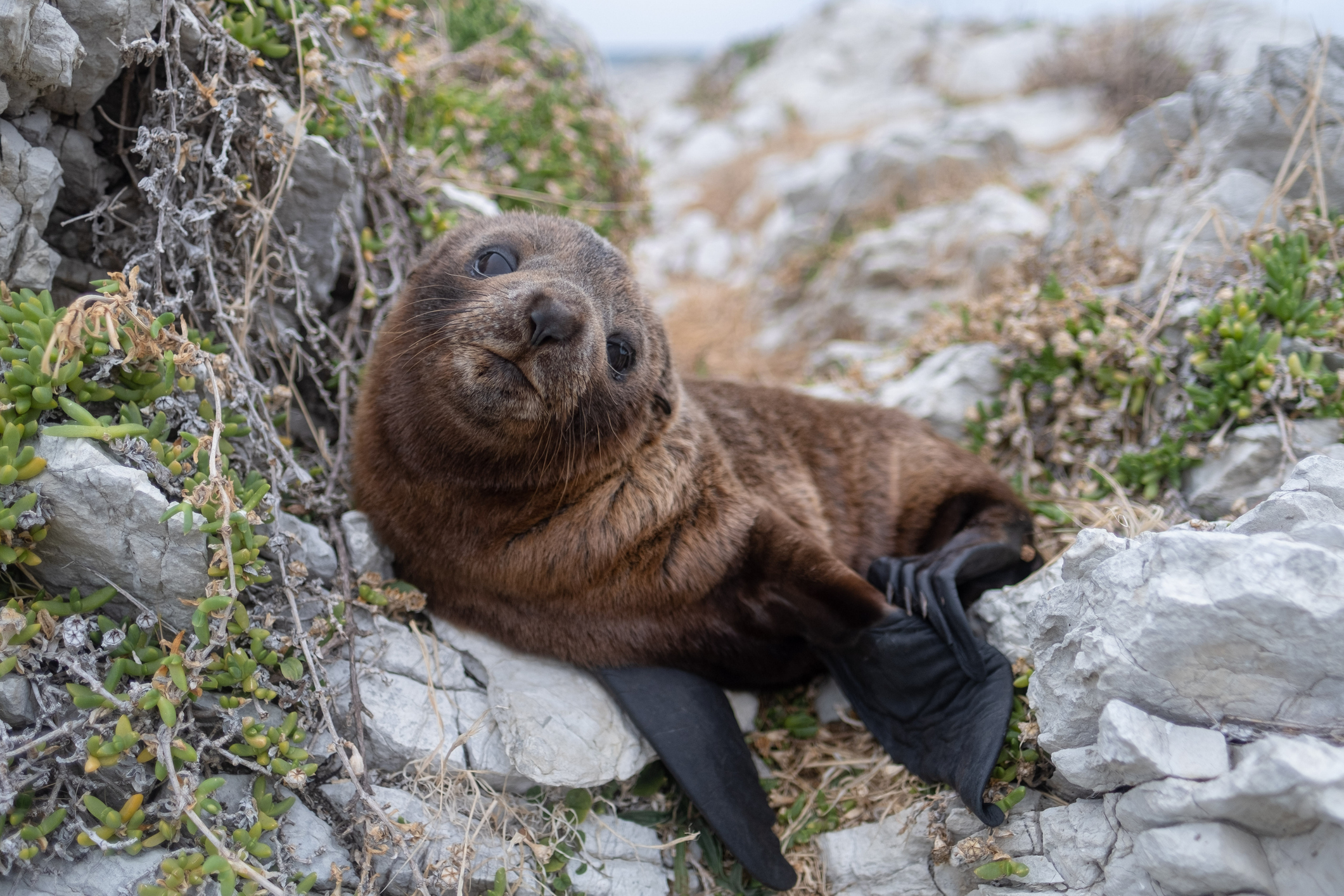
Immigration and visa issues
In general, there are three official paths for US citizens to retire in New Zealand, and the first two are expensive.
A temporary retirement visa. American retirees should expect to clear some hurdles to gain the temporary visa.
“Applicants must be 66 years or older, invest NZD 750,000 (New Zealand currency) over years, show a further 500,000 is available for self-support, and must be able to demonstrate an ongoing income (for example from pension, investment returns, business profit, and rental returns) of at least NZD 60,000 annually,” said James Hall, founder of ANZ Migrate, a migration services firm that specializes in Australia and New Zealand permanent residencies. (As of May 5, 2025, $100 US dollars is worth 167 New Zealand dollars; the NZD 750,000 initial investment is about $450,000 US).
The visa is only approvable for applicants and their spouses, with no children included.
The visa can be renewed every two years by maintaining the applicant's NZD 750k investment. “Investment options are quite broad and include bonds, funds, property (with some restrictions under residential), and investment shares,” Hall said. “This is not a pathway to permanent residence and can only remain in NZ while maintaining the visa and investment.”
Going permanent. New Zealand also has permanent residence for life with no age limit. “This option starts with a $5 million investment funded for three years,” Hall said. “During the three years, a 21-day minimum stay is required. At the end of the three years, the applicant, spouse, and dependent children (up to age 24) get permanent residence visas in New Zealand for life without further requirements.”
Residing with children. Hall noted there are various options for parents with children who are residents of New Zealand, “either as permanent residents or citizens.” Americans considering retiring in New Zealand should consult with a trusted financial adviser, especially on tax and investment issues. Consulting with a knowledgeable immigration lawyer can also unlock some great residence ideas.
Cost of living
Like most sizable foreign destinations, the cost of living in New Zealand varies depending on where a visitor sets roots.
Housing. Buying a two-bedroom home can range from NZD 450,000 to NZD 800,000, depending on location. “Renting a two-bedroom home typically costs between NZD 1,500 and NZD 2,500 per month, with Auckland and Wellington being on the higher end of the spectrum,” Borkar said. “Utilities will likely cost NZD 150 per month.”
Borkar said she rented a “decent place” in Auckland for NZD 2,100 monthly. “The real estate market can be competitive, especially in popular regions, so retirees should plan accordingly,” she said.
Groceries and dining out. Grocery costs can be higher than in many US cities, with typical expenses for a couple’s weekly grocery run averaging NZD 150-250.
“Dining out is relatively affordable, with a dinner for two at a mid-range restaurant costing between NZD 50-80,” Borkar said. “For a casual meal, you can expect to spend NZD 15-30 per person.”
Overall, the cost of living can be manageable if retirees plan for these expenses. “That’s particularly the case in smaller cities or rural areas where housing costs are lower,” Borkar said. “It also depends on what kind of savings you take from the US to New Zealand.
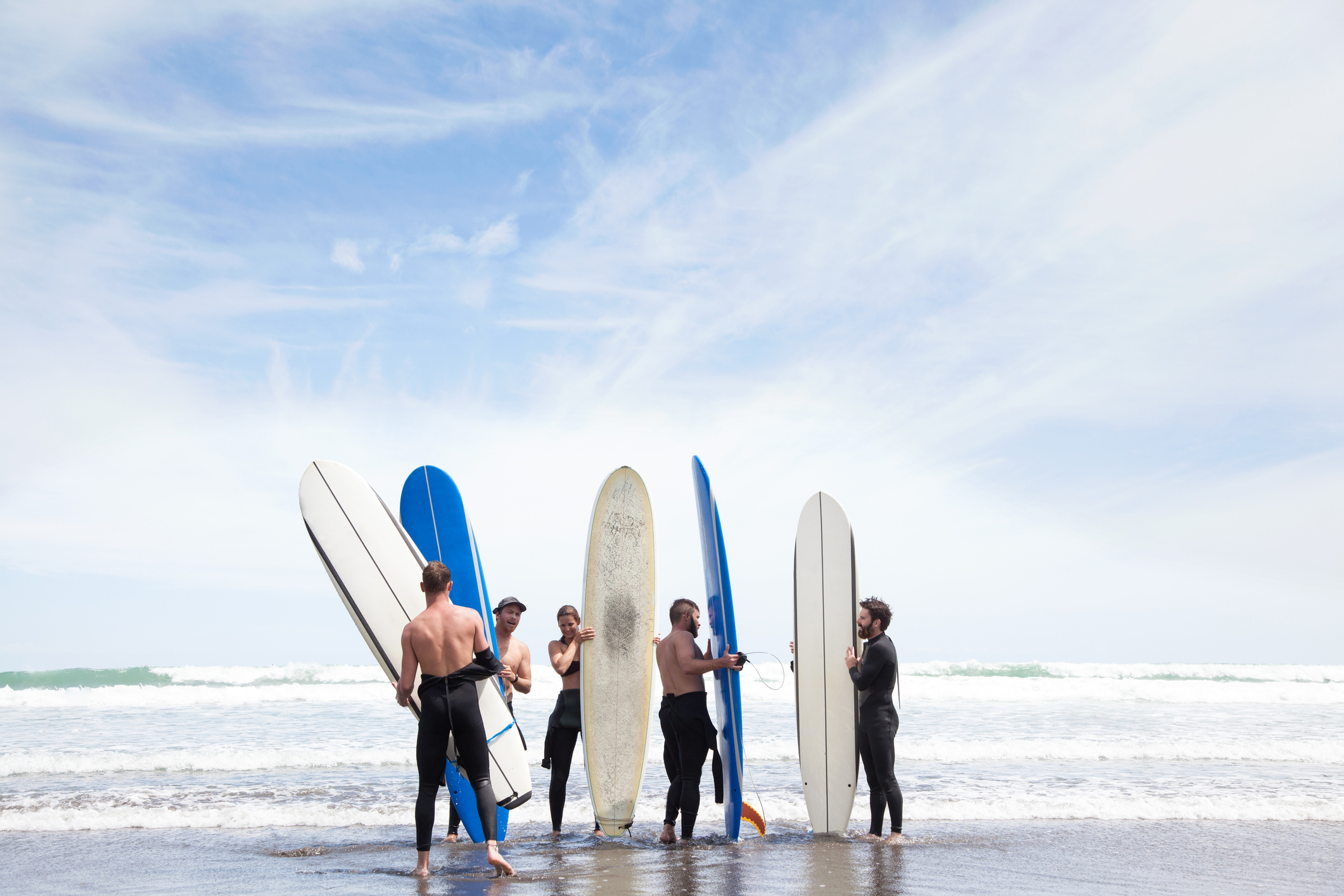
Healthcare
Stuart Nash, a former New Zealand government minister and founder of Nash Kelly Global, a concierge relocation service that helps individuals move to the country, says that New Zealand health insurance is “first world”. That said, Nash advises that anyone coming to New Zealand have medical insurance and that anyone living in New Zealand also have health insurance.
“We have a very well-funded public health system, which is very good,” Nash said. “If you have a heart attack, you will be rushed and treated expertly and won’t be charged for treatment. That’s due to the New Zealand Accident Compensation Corporation (ACC), which means there's a no-fault system for personal injuries, whether you’re a resident or visitor.”
For more basic healthcare services, Nash advises taking out private health insurance as the private health market in New Zealand is very well-funded and resourced. “If you're retired and fall off a bike and wrench your knee and you're not ‘urgent,’ then in the public system, it'll take you a while to get seen,” Nash added. “In the private system, you're sorted out pretty much straight away.”
Best places to retire in New Zealand
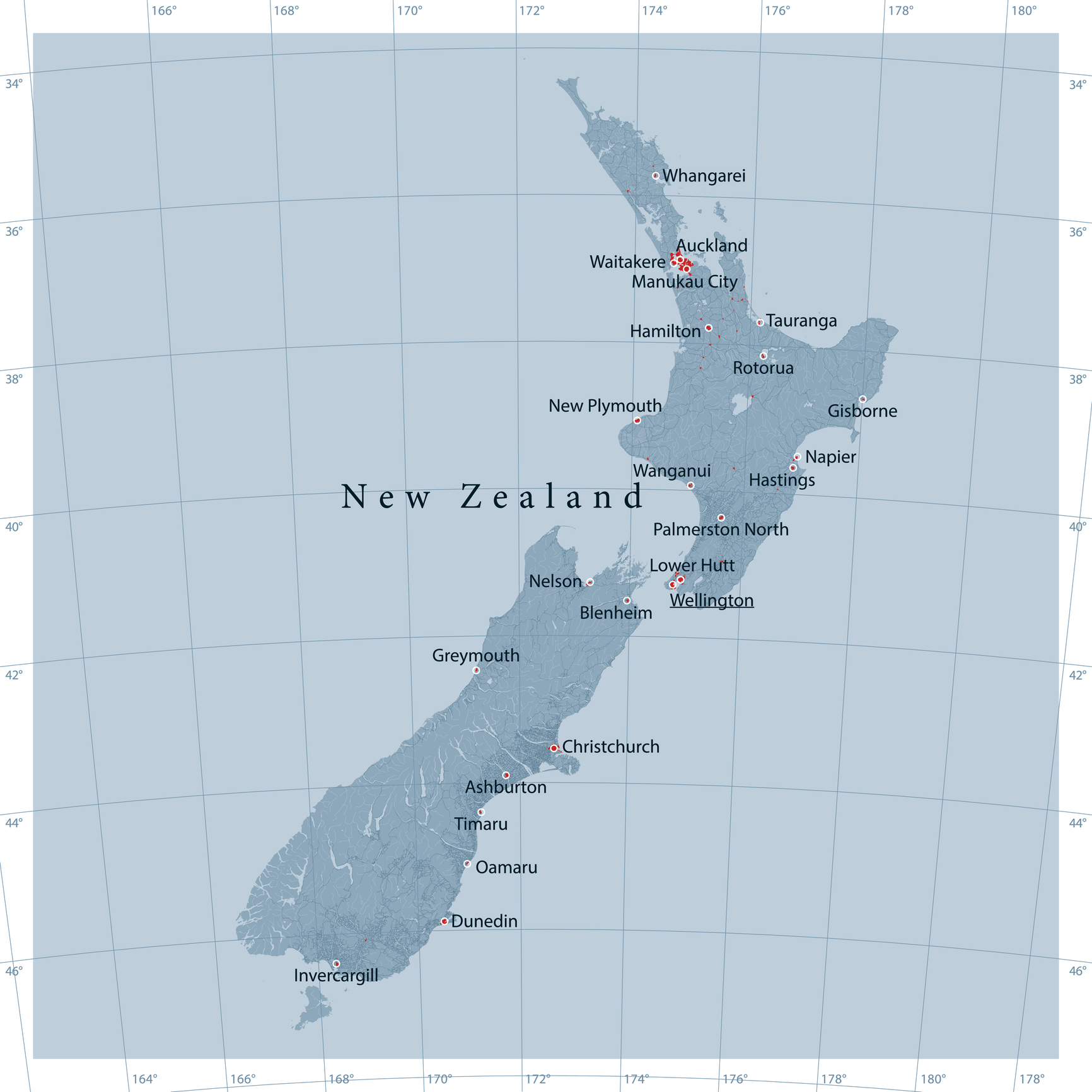
New Zealand is approximately a 13-hour plane ride from San Francisco and about 17 hours from New York City (multiple direct flights are available from Los Angeles and San Francisco). So it’s not easy to visit the country on a test run. Still, doing so makes sense if you’re considering living in New Zealand.
When you go, in-country experts have a few ideas for you.
“Head to Queenstown if you're really into your high-end outdoor activity,” Nash said. “It's got world-class golf courses, amazing cycle trails, skiing, camping, and tramping.”
The east coast of New Zealand’s North Island, where Nash resides, is worth a look, too.
“We've got one of Julian Robinson's golf courses, and we have a fantastic lifestyle with friendly people and an amazing climate,” he noted. “About $1-2 million in US dollars will buy you one of the nicest houses in Napier.”
Hawke’s Bay, also on the east coast of the North Island, is one of Borkar’s favorites.
“If you prefer a warmer climate and a relaxed lifestyle, Hawke’s Bay is an excellent choice,” she said. “It’s known for its wineries, art deco architecture, and relaxed atmosphere. It offers a great lifestyle with lower living costs than major cities like Auckland.”
Wellington offers a choice lifestyle, too, balancing urban and rural experiences. “The capital city offers a vibrant cultural scene, excellent public transportation, and plenty of amenities,” Borkar said. “Wellington is a perfect spot for those who enjoy a bustling city lifestyle but don’t want to sacrifice access to nature. Maybe it was the time we visited, but it was a tranquil city, which we loved.”
Don’t be reluctant to rent a vehicle and see the country yourself; many Americans do.
“We’re a safe country,” Nash said. “We see many US retirees hiring a camper van. They'll start in Auckland, go up north, and then return and spend three or four months traveling. They may park up the camper van for winter and then go and do another summer trip.”
Assimilating into the Kiwi culture

The most pressing issue is networking in your local community, and one of the best ways to do this is to start meeting people.
“Joining a club is helpful,” Nash said. “For example, we have the most amazing cycleways here called the National Cycle Trails, which are great for active retirees.”
The prevalence of electric mountain bikes has changed the nature of New Zealand’s outdoor activity, making it easy to join a bike club. “We see so many retired people jump on an electric bike and go on a five-day cycle trail in various parts of the country,” Nash added.
Nash said he’s currently dealing with a very high net worth family from Europe who are looking for social connections.
“The family’s father came to us and said, ‘How do I network?’ So we put him in touch with different clubs and now he's finally found his tribe, so to speak.”
Assimilating in New Zealand is not going to happen overnight. “Don't expect to turn up on the Saturday, and then people invite you around for a Sunday roast. It'll take a while.”
Yet a little effort goes a long way in getting comfortable in New Zealand.
“We've introduced one of our clients’ wives to a pottery group, and actually, she's found that 75% of people in that group are expats,” Nash added. “In Queenstown, one of the world's leading health spas is down there. You can go and do your yoga.”
“You don’t give up the luxuries of life when you come to New Zealand,” he added.
More on where to retire abroad
- Retire in Italy for Culture and Beauty
- Retire in Greece for Relaxed Living With a Cinematic Backdrop
- Retire in Thailand Where 'The White Lotus' Was Filmed
- Retire in Mexico: Get a Lower Cost of Living Near the US
- Where to Retire: Living in Portugal as a US Retiree
- Where to Retire: Living in the Dominican Republic
- Where to Retire: Living in Panama Offers Stability and Charm
- Where to Retire: Living in Brazil Is More Than Carnival, Coffee and Copacabana
- Where to Retire 2025: Puerto Rico
Profit and prosper with the best of Kiplinger's advice on investing, taxes, retirement, personal finance and much more. Delivered daily. Enter your email in the box and click Sign Me Up.

A former Wall Street bond trader, Brian O’Connell is the author of two books: “The 401k Millionaire” and “CNBC’s Creating Wealth.” He's written for national finance publications such as TheStreet.com, CBS News, The Wall Street Journal, U.S. News & World Report, Forbes, Fox News and others. With 20 years of experience covering business news and trends, he believes education is the best gift a financial consumer can receive – and brings that philosophy to his work. Brian is a graduate of the University of Massachusetts, and currently resides in Palmas del Mar, Puerto Rico during the winter, and in Bucks County, Pa., when Mother Nature cooperates.
-
 Quiz: Do You Know How to Avoid the "Medigap Trap?"
Quiz: Do You Know How to Avoid the "Medigap Trap?"Quiz Test your basic knowledge of the "Medigap Trap" in our quick quiz.
-
 5 Top Tax-Efficient Mutual Funds for Smarter Investing
5 Top Tax-Efficient Mutual Funds for Smarter InvestingMutual funds are many things, but "tax-friendly" usually isn't one of them. These are the exceptions.
-
 AI Sparks Existential Crisis for Software Stocks
AI Sparks Existential Crisis for Software StocksThe Kiplinger Letter Fears that SaaS subscription software could be rendered obsolete by artificial intelligence make investors jittery.
-
 Quiz: Do You Know How to Avoid the 'Medigap Trap?'
Quiz: Do You Know How to Avoid the 'Medigap Trap?'Quiz Test your basic knowledge of the "Medigap Trap" in our quick quiz.
-
 We Retired at 62 With $6.1 Million. My Wife Wants to Make Large Donations, but I Want to Travel and Buy a Lake House.
We Retired at 62 With $6.1 Million. My Wife Wants to Make Large Donations, but I Want to Travel and Buy a Lake House.We are 62 and finally retired after decades of hard work. I see the lakehouse as an investment in our happiness.
-
 Social Security Break-Even Math Is Helpful, But Don't Let It Dictate When You'll File
Social Security Break-Even Math Is Helpful, But Don't Let It Dictate When You'll FileYour Social Security break-even age tells you how long you'd need to live for delaying to pay off, but shouldn't be the sole basis for deciding when to claim.
-
 I'm an Opportunity Zone Pro: This Is How to Deliver Roth-Like Tax-Free Growth (Without Contribution Limits)
I'm an Opportunity Zone Pro: This Is How to Deliver Roth-Like Tax-Free Growth (Without Contribution Limits)Investors who combine Roth IRAs, the gold standard of tax-free savings, with qualified opportunity funds could enjoy decades of tax-free growth.
-
 I'm a Wealth Adviser Obsessed With Mahjong: Here Are 8 Ways It Can Teach Us How to Manage Our Money
I'm a Wealth Adviser Obsessed With Mahjong: Here Are 8 Ways It Can Teach Us How to Manage Our MoneyThis increasingly popular Chinese game can teach us not only how to help manage our money but also how important it is to connect with other people.
-
 Global Uncertainty Has Investors Running Scared: This Is How Advisers Can Reassure Them
Global Uncertainty Has Investors Running Scared: This Is How Advisers Can Reassure ThemHow can advisers reassure clients nervous about their plans in an increasingly complex and rapidly changing world? This conversational framework provides the key.
-
 5 Ronald Reagan Quotes Retirees Should Live By
5 Ronald Reagan Quotes Retirees Should Live ByThe Nation's 40th President's wit and wisdom can help retirees navigate their financial and personal journey with confidence.
-
 I'm a Real Estate Investing Pro: This Is How to Use 1031 Exchanges to Scale Up Your Real Estate Empire
I'm a Real Estate Investing Pro: This Is How to Use 1031 Exchanges to Scale Up Your Real Estate EmpireSmall rental properties can be excellent investments, but you can use 1031 exchanges to transition to commercial real estate for bigger wealth-building.